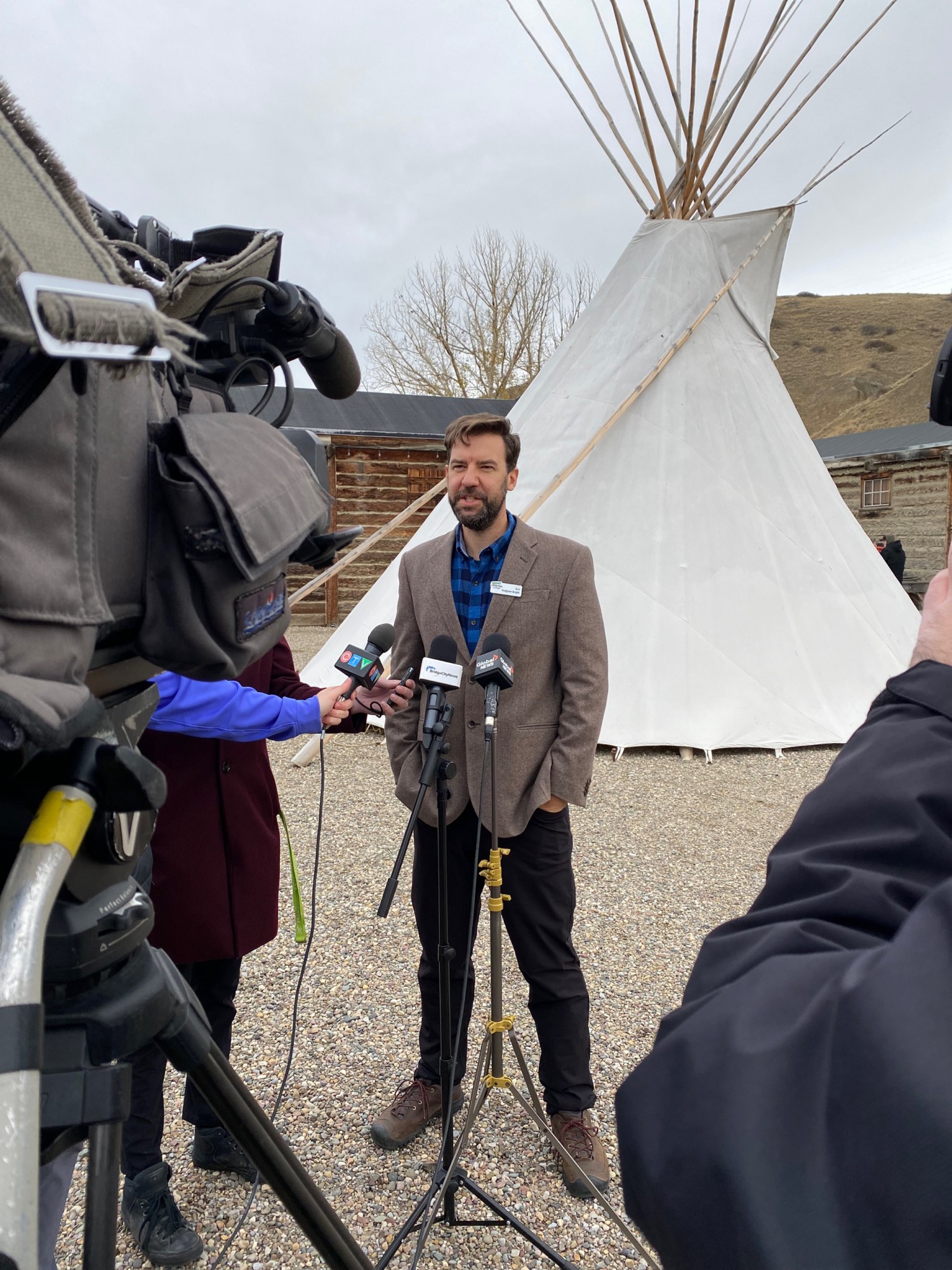
Taking a closer look at statistics within the justice realm is the focus of one of a handful of internally funded research projects taking place at Lethbridge College this academic year thanks to grants awarded by the Centre for Applied Research, Entrepreneurship and Innovation (CARIE).
Justice by numbers: the politics of quantification and statistics in the Canadian justice system, by Dr. Gary Barron, chair, Justice Studies – Bachelor of Applied Arts, will examine how numbers related to crime and justice enter popular discourse.
It’s a continuation of a project Barron began in the 2021-22 academic year – Quantifying Justice: Metrics and Ethics in Canadian Criminal Justice – that involved a literature review on the sociology of quantification regarding crime, policing and justice. “Every time you create a category or number, it’s political,” says Barron. “You’re deciding to exclude some group of people or some information in favour of some others, so what are the consequences and ethics of doing that?”
In the second phase of his ongoing research project, Barron is focusing on three areas of potential inquiry. One is around the creation of a set of categories that police organizations will be required to collect as part of Statistics Canada’s Uniform Crime Reporting Survey on Indigeneity and racialized identity. Another involves the possibility of working with a police service to track its implementation of, and results from, a public perception survey. A third potential research direction would explore public responses to crime data, such as the Crime Severity Index released each year by Statistics Canada.
“It’s another example of the influence and power of numbers, as people don’t stop to look at what’s behind the data,” says Barron. “There’s some interesting work that can be done around the media, and public and political responses to large-scale numbers like that.”
Barron has successfully applied for Centre for Applied Research Internal Fund (CARIF) grants and Social Sciences and Humanities Research Council (SSHRC) Explore grants to support his project. Both grants are awarded by CARIE.
CARIF grants exist to develop applied research capacity among employees at Lethbridge College by funding short-term projects and activities that align with the strategic goals and priorities of the college and its centres. It’s expected that projects will be a starting point toward a long-term vision and plan for applied research, including funding from external sources. Projects may involve either one or two applicants and awards may be up to $15,000.

Other CARIF-funded projects for the 2022-23 academic year include:
- Evaluating substrate preference and yield of blue oyster Pleurotus ostreatus grown on crop waste and food industry waste – Dr. Adriana Morrell. A new mycology lab will focus on beneficial, medicinal and gourmet fungi. Key goals are to promote sustainability in agriculture, develop collaborations between programs and encourage student involvement in mycology research.
- Belly River Battle project – Kris Hodgson-Bright. The Battle of the Belly River, between the Blackfoot and Cree, took place in 1870. This applied research project is focused on Niitsitapi (Blackfoot) knowledge and perspectives of the event through family stories and artifacts. Stories told by Blackfoot Elders will be transcribed, animated and combined with three-dimensional images of artifacts from the battle as well as drone footage of the Lethbridge river valley, the teepee at Fort Whoop-Up, Writing-on-Stone Provincial Park and Head-Smashed-In Buffalo Jump to create a virtual reality experience.
- Exercise, Executive Function, and Mental Health – Dr. Simon Schaerz and Caylee Vogel. In addition to conferring strong physical health benefits, emerging evidence suggests exercise positively affects brain function and health, but more research is needed. This study seeks to explore the effects of a 10-week exercise program on Lethbridge College students’ executive functions (i.e., inhibitory control, working memory, cognitive flexibility) and symptoms related to psychological ill-being (i.e., depression, anxiety, stress).
SSHRC Explore and SSHRC Exchange grants are available for continuing faculty members in the social sciences and humanities to support small-scale research and related activities. Explore grants exist to help applicants seed new social science or humanities projects or leverage extramural funding. Exchange grants encourage applicants to organize small-scale knowledge mobilization activities, such as workshops and seminars, to encourage collaboration and the dissemination of research results both within and beyond the academic community. Both grants have a maximum value of $6,000 and may also be coordinated with a CARIF grant.
In addition to Barron’s Justice by numbers SSHRC Explore project, SSHRC Exchange grants for 2022-23 include:
- Sparking Interest in Literacy – Author Visits as a Tool to Enhance Learning, Motivation, and Connection – Dr. Amy Hodgson-Bright. Several Canadian authors of children and young adult literature will be invited to Lethbridge College to speak to student writers enrolled in ENG1185 Writing for Children and Young Adults. Not only will this enhance students’ experiences as readers and writers, but it will also help them construct knowledge around literary practices.
Internal grants like CARIF and SSHRC play a vital role in developing research capacity at Lethbridge College.
“Providing opportunities to introduce our college instructors and staff members to research is core to CARIE’s sustainability,” says Dr. Kenny Corscadden, Vice President – Research and Partnerships. “Our employees have a passion and expertise for their work and collaborate closely with industry, which gives them a unique perspective on areas that would benefit from applied research projects. CARIF and SSHRC funding makes it possible for our employees to pursue these meaningful and exciting projects.”
Letters of Intent for the 2023-2024 CARIF and SSHRC competitions are due by Monday, Jan. 9. More information on available internal grants and the application process can be found on Lethbridge College’s Centre for Applied Research, Innovation and Entrepreneurship (CARIE) website.
CARIE is a catalyst for economic growth, sustainability and social development in the region. It brings together researchers, community organizations and students to collaborate on projects that use new or existing knowledge to solve real-world challenges with immediate practical applications.